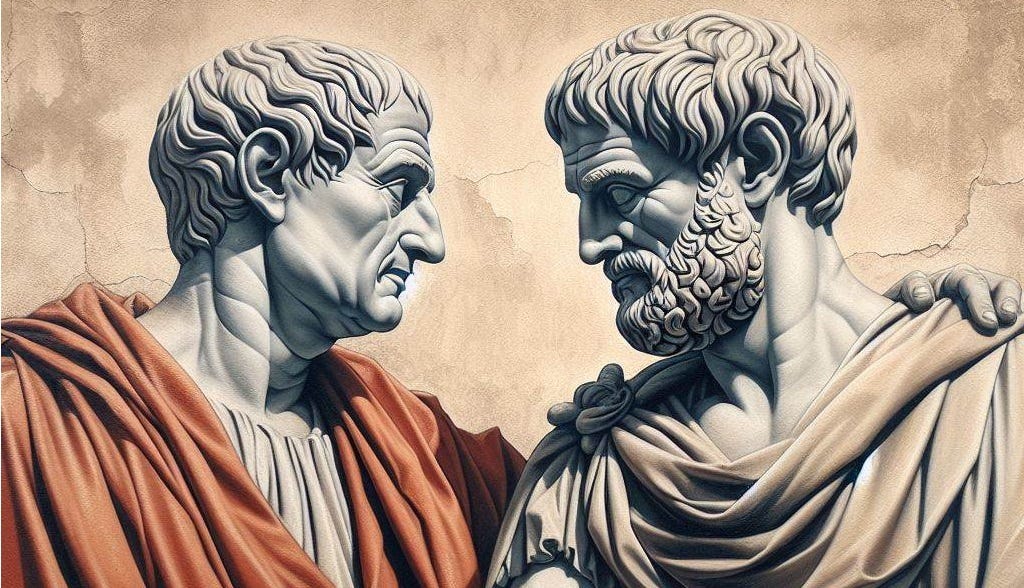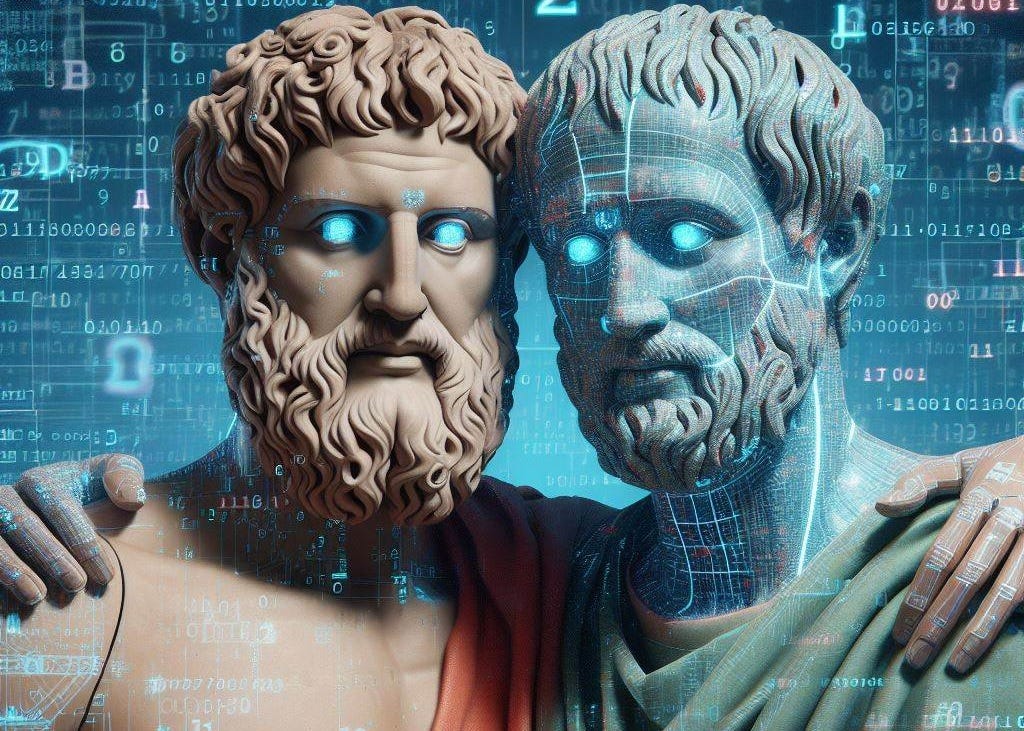Cicero and Aristotle x IT engineers: antiquity and civilization or modernity and barbarism
In the book On The Laws, on two separate occasions, Marcus Tullius Cicero praises citizens who challenge bad proposals:
“There must be no violence in the people’s assemblies. An equal or greater authority always prevails. However, the president of the assembly is held responsible for any disorder that occurs. The person who opposes bad proposals is declared a helpful citizen.” (As Leis, Marco Túlio Cícero, editora Unicamp, Campinas, 2022, p. 185)
“The following law says: The person challenging a harmful measure must be considered a helpful citizen.
Who should not dedicate themselves to the State with all their dedication, if they were praised by this noble word of the law?” (As Leis, Marco Túlio Cícero, editora Unicamp, Campinas, 2022, p. 225)
The Roman jurist and philosopher takes up a theme dear to Aristotle but reverses the reasoning that the Greek philosopher exposed in his work Politics. Aristotle says:
“As for the project of granting prizes to the authors of any discoveries useful to the State, it is not without drawbacks – although, from the first word, it presents something seductive – because, if put into practice, it could be the cause of many intrigues and upheavals in government.” (A Política, Aristoteles, editora Nova Fronteira, Rio de Janeiro, 2011, p. 70/71)
Rewarding good proposals can be a source of problems according to Aristotle. Honoring those who contest bad proposals seemed more appropriate to Cicero. In one case, we have the denial of affirmative state action considered dangerous. In the second, the affirmation of a negative individual action that can be useful to the State.
In modern States, good and bad proposals compete for citizens' attention. Due to freedom of conscience and expression, we can say that they combine the proposals of Cicero and Aristotle. But no State should reward those who challenge good proposals or silence and punish those who challenge bad proposals. In both cases, the State would only be digging its own grave.
The hegemony of social networks and internet platforms has complicated the political landscape. Algorithms are designed to maximize profit by driving content that generates greater emotional engagement. Therefore, they are designed to reward bad proposals (hate speech, racism, Fake News, conspiracy theories and science denialism) and minimize or virtually silence good proposals that are less shared.
The economic irrationality of social networks is capable of destroying any political rationality based on a combination of the philosophies of Cicero and Aristotle. In addition to not having a philosophical background, the IT engineers who modeled and model the virtual world are only concerned with short-term profits. Medium and long-term political effects of the algorithms they create were not and are not an object of consideration during their work.
Artificial Intelligences generally do poorly on philosophy tests. This was proven by me on two separate occasions within a year of separation. See 1 and 2. The inability of the modern State to quickly adjust to the new reality is a depressing fact. Data barons have become economically powerful and are able to deform the political arena by distributing rivers of money to the press. In countries where private donations are allowed, they help to elect politicians who will obviously feel neither tempted nor forced to betray the financiers of their electoral campaigns.
Not to mention petty businessmen who aim to capture ever larger slices of the public budget by leading the State to compromise long-term public policies (such as education). This seems to be the case with the Secretary of Education of the State of São Paulo - Brazil, who profits from the computerization of schools and generates anxiety and hatred among teachers saying that they can and should be replaced by Artificial Intelligence. As a result, it seems appropriate to me to unconditionally support the strike that will be carried out by Apeosp (teachers union), as São Paulo teachers challenge bad proposals and must be declared helpful citizens (Cícero).
If we cannot restore some rationality to the public arena, modern States are doomed to sink into barbarism. This is a danger that is becoming more real precisely because we are allowing ourselves to be fascinated by modern technologies, forgetting that political institutions are the result of long maturation.
Aristotle wrote his works in the 4th century BC. Cicero lived and wrote his books in the 1st century BC. The works of both are still relevant, as they helped to define what may or may not be useful for the construction and perpetuation of the political space in which we live in a peaceful and productive way. However, their reflections on extremely relevant issues (whether or not to reward good proposals and the importance of challenging bad proposals) are being left aside. What can't go wrong?
PS: The images used here were generated by Copilot, from Microsoft.




